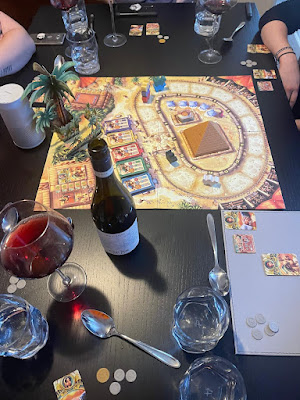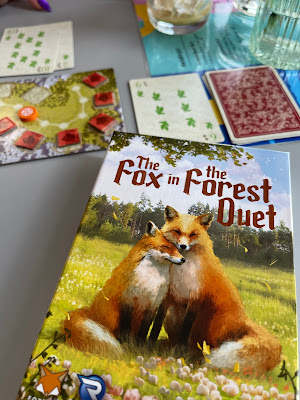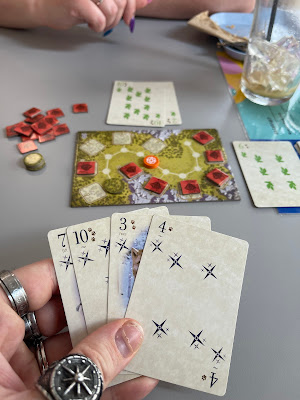Hand Limit is going through a lot of growth in recent weeks. We held our first in-person event, launched a Patreon, and announced our first steps into physical print with our new Hand Limit zine.
We are also gearing up for some more input from the wider Hand Limit Collective. This will take the form of gaming-inspired artwork, articles covering cosy video-games, and reviews of TTRPG Actual Play podcasts.
With all this exciting new material we put our heads together to come up with a suitable tagline for Hand Limit. We wanted something that clearly stated our intentions and incorporated our core values, but didn't take up a whole paragraph. That wouldn't make for a snappy tagline. If you want to read more about our core values, I recommend taking a moment to check out our About Us page.
Hand Limit stands for a lot of things; we believe in equality, equity, and inclusion, we believe trans rights are human rights, and black lives matter, and we believe in the rights of people with disabilities. We believe in making an inclusive space. We believe that engaging in the act of unproductive play as an adult in a capitalist society is an inherently rebellious act and is therefore political. Most prominently of all we believe in the power of tabletop games to improve mental health and promote community bonds, and a big part of this is the tangible nature of the hobby.
Considering this, we have decided that the tagline for Hand Limit should be "Gaming In Real Life".
The University of Bath reports that "Loneliness is one of the most significant challenges faced by Western Societies in the 21st century... In the UK, surveys suggest that one in ten people are 'lonely', with loneliness being linked to ill health and premature mortality."
We are living in an increasingly digital age with more of our time than ever before spent consuming social media. However, the AMA Journal of Ethics states that "documented internet use patterns suggest that the internet increases loneliness." It cites an early study of the internet and psychological well-being found that greater use was linked to a decline in communication with family members, a decreasing social circle, and an increase in depression and loneliness. Loneliness, it states, "can be defined as the feeling we get when our need for rewarding social contact and relationships is not met."
While digital technology can "offer connectedness, companionship, and community membership", it cannot be ignored that problematic use of the internet, or internet addiction, is on the rise at the same time as loneliness.
Tabletop games can offer a remedy to this by offering an opportunity for in-person interaction that has clearly defined parameters. Strangers occupying the same space and engaging in a shared activity, especially one that promotes playfulness, creates a space in which rewarding social contact can be achieved. Writing for meeplelikeus.co.uk, Michael Heron highlights that table top games provide "a healthy way for people to spend mindful time with each other."
Heron goes on to say that "everything about a board game has a focus on the people around the table... games do it through a conduit that lessens social anxiety." Tabletop games provide a focal point, a common ground, to encourage the players around the table to interact with each other in ways that other social activities such as drinking in the pub or going to the cinema do not.
Then there's the simple fact that play in both children and adults is a healing activity that allows growth of character. We explore the world around us through the act of play, which provides us with a testing ground for our own actions. It lifts the weight of responsibility, even for a short while, and allows us all to engage in the fantastic, rather than the mundane. This act builds social bonds between us in ways that others take much longer to do. I have already written about how playing board games with strangers offers you a much faster insight into the inner-workings of other people around the table than traditional small-talk enables. How someone acts around the table in both cooperative or competitive situations, provides us with a much better grasp of how someone is likely to behave outside of play. This takes away a great deal of anxiety that people may feel in situations where they are getting to know new people.

Aside from the real-life social element of tabletop games, there is the physicality of the actual games. While online gaming can still offer a sense of community and connectivity, the very real, tangible nature of board games provides a sensory experience that even the most advanced virtual reality cannot replicate. The tactile nature of most board games provides a connection to the real world that boosts a player's sense of wellbeing, and of being present in the moment.
The digital world can all-to-often feel unreal and disconnected from reality, whereas tabletop games provide a connection to fantasy and imagination, while also being grounded in the physical world. Pieces can be touched, picked up, even tasted if you are so inclined and have the owner's permission. The realness of tabletop games, even theater-of-the-mind TTRPGs, connects players to each other, to their physical location, and to the game itself in ways the digital realm cannot. By being grounded in reality, tabletop games create a space for mindfulness, connectivity, and a sense or presence that boosts our mental health and tackles feelings of social isolation.
All this being considered, it feels pertinent that Hand Limit's tagline should be:
Gaming In Real Life
















.jpg)